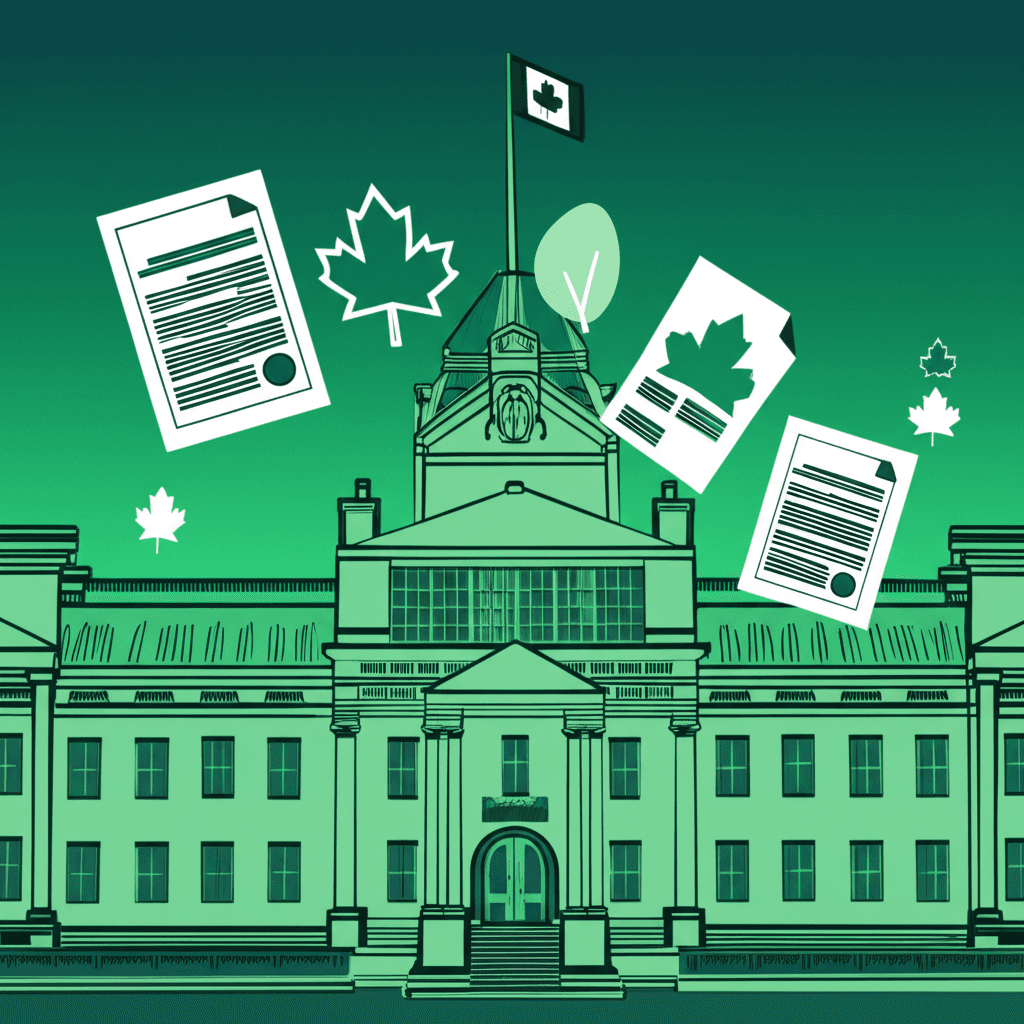Tired of procurement pain? Our AI-powered platform automates the painful parts of identifying, qualifying, and responding to Canadian opportunities so you can focus on what you do best: delivering quality goods and services to government.
Secure NRCan Contracts: Top 5 Environmental Services Strategies
Canadian Environmental Services, Sustainable Practices
Top 5 Ways Environmental Services Firms Can Secure Projects with Natural Resources Canada: A Practical Guide
For Canadian environmental services firms seeking to navigate the complex landscape of government contracts, Natural Resources Canada (NRCan) represents one of the most significant opportunities in federal procurement. With over $4 billion allocated to critical minerals development and $1.5 billion dedicated to hydrogen strategy implementation through 2027, NRCan's environmental project portfolio requires specialized technical expertise in energy efficiency, decarbonization, and sustainable resource management[13]. This comprehensive guide explores proven strategies for professional services firms to successfully compete in government RFPs while addressing common challenges in the government procurement process - from fragmented opportunity discovery across 30+ bidding platforms to the intensive demands of preparing compliant technical proposals.
1. Master NRCan's Sustainability Procurement Frameworks
NRCan operates under stringent environmental procurement requirements defined by the Policy on Green Procurement and Greening Government Strategy. These mandate lifecycle assessments for all major construction projects exceeding $5 million, with a 30% embodied carbon reduction target for federal infrastructure projects starting in 2025[1][4]. Environmental services firms must demonstrate how their proposals align with:
Whole-building lifecycle carbon accounting methodologies
Material efficiency optimization strategies
Circular economy principles for construction materials
The 2023 Standard on Embodied Carbon in Construction requires bidders to disclose environmental product declarations (EPDs) for all structural materials, creating both compliance challenges and differentiation opportunities for firms with advanced carbon accounting capabilities[12]. Recent contract awards like GHD's $40 million fleet decarbonization project highlight NRCan's preference for vendors integrating data analytics with environmental impact modeling[14].
2. Leverage Specialized Procurement Vehicles
NRCan utilizes targeted acquisition mechanisms that environmental services providers should prioritize:
Energy Performance Contracts (EPCs)
Through the Federal Buildings Initiative, NRCan maintains a Qualified Bidders List (QBL) of pre-approved Energy Service Companies (ESCOs) for turnkey energy retrofit projects[2][7]. Tier 1 ESCOs like Ameresco Canada and Siemens Canada can bid on contracts exceeding $5 million, while Tier 2 firms focus on smaller-scale implementations. Successful qualification requires demonstrating:
Proven track record in performance-based contracting
Integrated financing solutions for guaranteed savings projects
Technical expertise in building automation systems and GHG measurement
Standing Offers for Professional Services
NRCan frequently uses TBIPS (Task-Based Informatics Professional Services) and SBIPS (Solutions-Based Informatics Professional Services) standing offers for environmental consulting services. These require:
Security clearance verification processes
Demonstrated competency in federal environmental reporting standards
Compliance with Indigenous participation requirements[11]
3. Align Technical Proposals with Decarbonization Roadmaps
NRCan's 2023-2027 Departmental Sustainable Development Strategy prioritizes six key environmental performance indicators that directly influence procurement decisions[13]:
Clean electricity grid integration
Critical mineral supply chain development
Building retrofit acceleration
Proposals must incorporate climate resilience assessments using NRCan's Public Infrastructure Engineering Vulnerability Committee (PIEVC) protocol and demonstrate alignment with the Pan-Canadian Framework on Clean Growth and Climate Change. Recent RFPs for mine site remediation projects have weighted environmental management plans at 40% of evaluation criteria, emphasizing:
Indigenous knowledge integration in ecological monitoring
Advanced geospatial analysis using NRCan's GeoBase datasets
Lifecycle cost analysis of nature-based solutions[3][8]
4. Develop Compliant Indigenous Engagement Strategies
Since 2021, NRCan has mandated Indigenous participation plans for all projects impacting traditional territories. The Industry Best Practices for Involvement of Indigenous Nations and Communities requires:
Early-stage Traditional Knowledge integration
Joint environmental monitoring program development
Equity participation opportunities in project delivery[11]
Successful bidders on recent boreal forest management contracts allocated 15-20% of proposal content to demonstrating:
Memorandums of Understanding with local Indigenous communities
Cultural competency training programs for field staff
Co-developed emergency response plans incorporating traditional ecological knowledge
5. Implement AI-Driven Opportunity Management Systems
With NRCan publishing 300+ environmental RFPs annually across 14 procurement platforms, firms need automated systems to:
Monitor MERX, Buyandsell.gc.ca, and provincial portals simultaneously
Analyze RFP requirements against technical capabilities
Generate compliance matrices for complex bid documents
Advanced AI government procurement platforms like Publicus transform opportunity identification through:
Natural language processing of 100+ page RFP documents
Automated eligibility scoring against 200+ criteria
Integration with NRCan's environmental performance indicators[16]
By combining technical expertise with strategic procurement practices, environmental services firms can position themselves as essential partners in achieving Canada's net-zero targets while building sustainable government contracting pipelines.
Sources
[https://natural-resources.canada.ca/energy-efficiency/qualified-bidders-list-details]
[https://www.tbs-sct.canada.ca/pol/doc-eng.aspx?id=32573§ion=html]
[https://natural-resources.canada.ca/energy-efficiency/building-energy-efficiency/qualified-bidders]
[https://www.ghd.com/en-us/expertise/environment/natural-resources]
[https://opo-boa.gc.ca/praapp-prorev/2021/epa-pprn-11-2021-eng.html]
